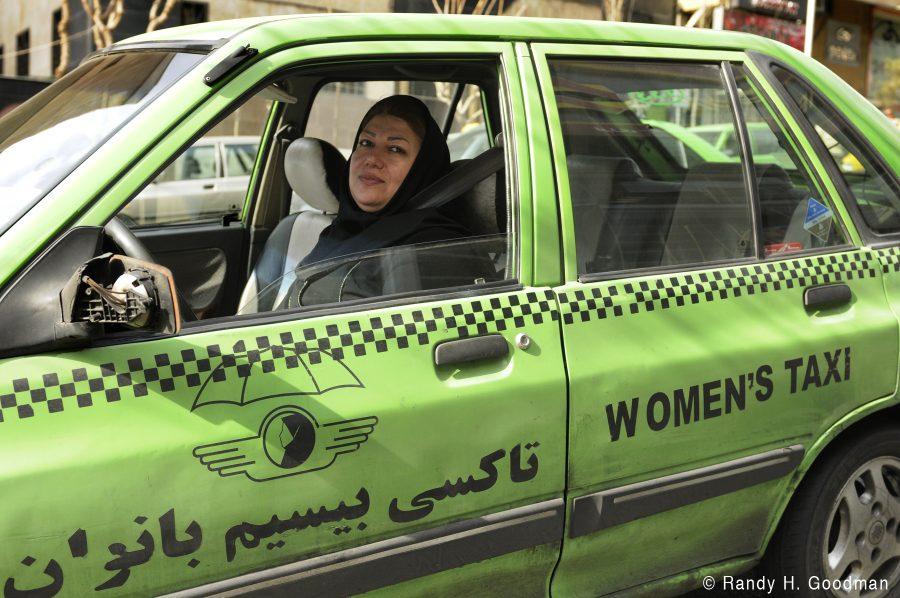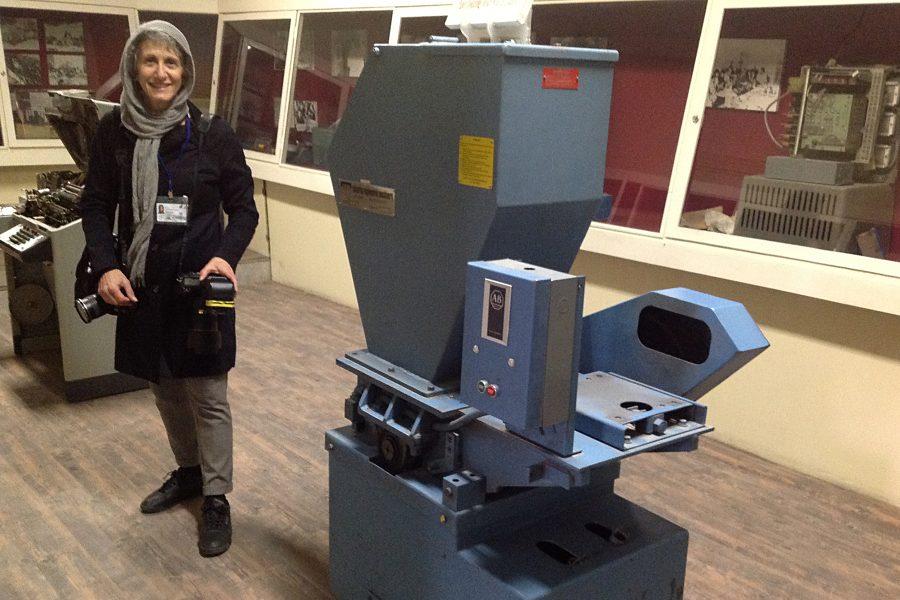On Friday, Feb. 26, photojournalist Randy Goodman opened her exhibit, IRAN: Women Only, to the public at the MIT Center for International Studies.
The Cambridge photojournalist, who worked as a freelancer for CBS-TV News and TIME Magazine during the Iran Hostage Crisis, decided to return to the Islamic Republic during yet another significant moment in the country’s history: the signing of the Iran Nuclear Agreement.
Returning to Iran after thirty-three years, Goodman explained, wasn’t an easy decision to make, due to the widespread view of Iran as a dangerous country for Americans. However, her previous work during the Iran Hostage Crisis period inspired her to go back.
“I realized I have an archive here. Without a compliment of [work about] contemporary Iran, it doesn’t have the same value. So, I’m hoping to do a book. That’s really the motivation. Because why should I have Iran’s history? It should be available for scholars, Iranians and others, to be able to look at,” Goodman said.
Randy Goodman continued to explain that her book will focus on the culture and women of Iran. Her photographs focus on showing women from different areas of life living in Iran, from a female taxi driver to an import/export business woman. “I mean there [are] women in all different capacities, working as entrepreneurs, in the universities, etcetera, and I think that’s important to show,” Goodman said.
She emphasized that the presence of these groups of women in Iran does not mean that all women there have access to such opportunities, and that it can be the case in all countries. “Often people in big positions…they inherit them from their families or they have connections, but regardless [the problem still] exists all around the world,” Goodman explained.
From observing the life of women in Iran, Goodman realized that most boundaries in women’s lives come from the legal system, which denies them what could be seen as elementary rights in the Western world.
“Legally, women have lots of restrictions: in the court, the divorce court, they don’t get the custody of their children, they have to conform to Islamic dress whether they want to or not, they have to get permission if they want to go out of the country from their husbands.” Goodman doesn’t claim to be an expert on the issue, but hopes to learn more about it to be able to discuss it more in-depth along with her photographs.
Although Goodman is not an expert on women’s issues in the Islamic Republic of Iran, she is well-educated on the politics of the country, and besides taking photos as an unbiased photojournalist, she has hopes for the future of the country. “This election is not going to change things but maybe it’ll show the government that more people are more inclined to support the nuclear agreement and to move forward socio-culturally… and if so, that gives the current President Rouhani the opportunity to push more legislative opportunities.”
One might wonder, why should America care about the lives of people in Iran? Why should there be such exhibits like that of Randy Goodman, focusing on women in Iran?
Goodman believes that while it’s important to learn about all cultures and countries of the world, Iran specifically has been shown to the American public from only one perspective. She believes it is important for Americans to also see that Iranians are not much different from them and do have good reasons to be skeptical of the United States due to previous history of U.S. interference in the internal affairs of Iran.
In fact, the United States went as far as to overthrow the democratically elected government of the Prime Minister Mohammad Mossadegh, who wanted to nationalize the Iranian oil industry. Goodman made reference to that coup d’état and explained the significance of it in terms of the current Iranian Nuclear Agreement: “I think the American people need to know what the Iranian perspective is, so that they can see they’re not crazy religious fanatics, they’re people who have real ground of reasoning for being cautious about the U.S., for being protective of their own interests and entering into deals and agreements with a lot of protectionist feelings.”
Randy Goodman’s exhibit will remain open to public until March 31 at the MIT Center of International Studies.






















































